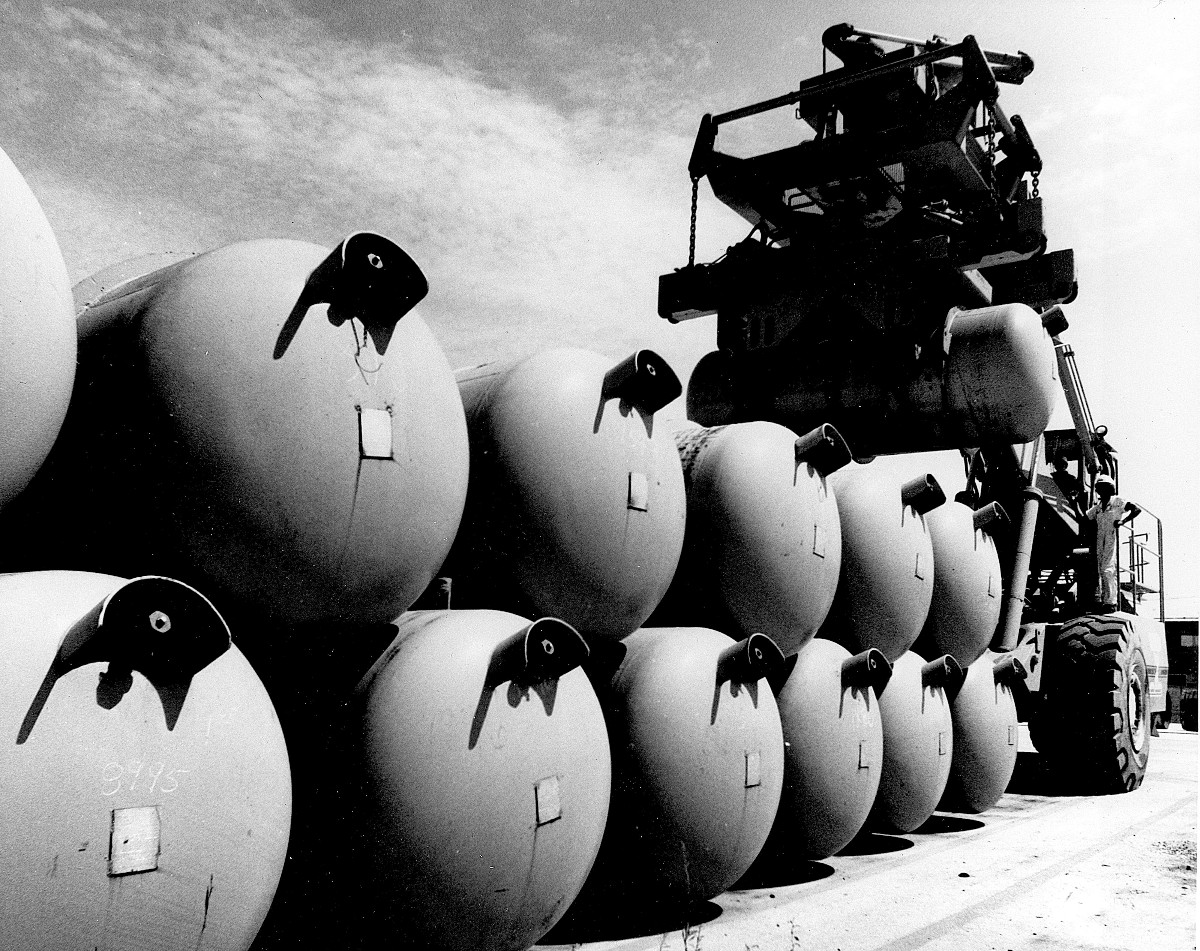 U.S. Department of Energy/Flickr
U.S. Department of Energy/Flickr
Creating an International Standard to Prevent Nuclear Terrorism
The threat of global terrorism is at an all-time high, and increased global instability has intensified the risk of nuclear terrorism. Without an international effort, the risk of a terrorist or other non-state actor acquiring nuclear materials to make a dirty bomb is large. To combat this threat, a global system must be established to control nuclear material, raise the priority of nuclear terrorism, and increase cooperation among states to create a cohesive global response plan.
Controlling Nuclear Material
A dirty bomb is a radiological dispersal device that combines conventional explosives with nuclear material. While this weapon is significantly less powerful than a nuclear bomb, the area in which the bomb is detonated will be contaminated by radiation. Immediate dangers include injuries from the conventional explosion, effects of radiation, and psychological impacts.
The risk of misplacing enough nuclear material to create a dirty bomb is high given the small amount of highly enriched uranium (HEU) and plutonium (Pu) required to make such a device. It takes 25 kilograms of HEU to make a dirty bomb, about the size of a grapefruit, and 8 kilograms of Pu. This is a relatively small amount considering the total global stockpile of HEU is 1,600,000 kilograms while that of Pu is 500,000 kilograms. There is not a global standard that dictates how to secure this material.
Prioritizing Nuclear Terrorism
The lack of a strong nuclear regime will lead to future problems when considering the prevalence of terrorism in the current security environment. A number of terrorist organizations, including al Qaeda and the Islamic State, have expressed an interest in acquiring nuclear materials. Without international standards, states may be vulnerable to theft of nuclear material, which poses a global threat.
Movement of nuclear materials has occurred in the past. The Islamic State stole 88 pounds of unenriched uranium compounds from a laboratory in Mosul, Iraq after it took over the city in 2014. Though this unenriched uranium poses a low threat, its theft shows motive. In addition, North Korea has been accused of selling nuclear technology to Syria. North Korea possesses weapons-grade nuclear materials, and could be willing to sell to terror groups and non-state actors as well. The exposure of the Abdul Qadeer Khan underground nuclear technology business in 2004 adds to these fears.
Increasing International Cooperation
International agreements that address nuclear terrorism are limited initiatives between states that agree on subsets of the larger issue at hand. The existing arrangements that exist to combat nuclear terrorism are all voluntary and there is no global system to monitor nuclear materials. The closest measure of accountability is the review process of the IAEA, which states opt into but have no requirement to partake in.
Emphasis needs to be placed on assigning responsibility for mismanagement of nuclear materials and combating a potential nuclear terrorism threat. Mismanagement of nuclear materials on the part of an individual state can lead to possession of a dirty bomb. Furthermore, if a terrorist or non-state actor possesses a dirty bomb it is unclear what the response of the international community would be and who would lead the effort to combat that threat.
Actions the United States Can Take
Given the global threat that nuclear terrorism poses, the priority of the United States must be the creation of an effective international regime to monitor, assess, and make decisions on the control of nuclear and other radioactive materials. Failure by one state to manage its nuclear materials poses a risk to the world, and thus a global effort must be made.
The United States and President Obama can take meaningful action by emphasizing the creation of international standards at the upcoming Nuclear Security Summit to be held in Washington DC. Discussions regarding accountability in the event of a nuclear terrorism scenario will be critical in combating this potential threat. The next administration should continue the Nuclear Security Summits to build upon these discussions with international partners. Only through continued interactions and debates will substantive standards be put in place.
Action can also be taken by bringing these issues to light in other forums with international partners. The United States is a member of many partnerships that focus on subjects including arms reduction, control of dual-use materials, and counterterrorism. These forums, among others, link the threat of nuclear terrorism and represent established cooperative relationships between states. By making nuclear terrorism a priority in these forums, the United States can build upon existing international relationships to stress the importance of preventing nuclear terrorism.





